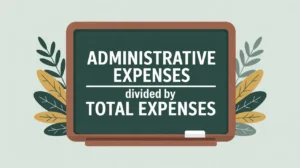Importance of Grants to Subrecipients / Partners
Grants to subrecipients or partners reflect how resources flow through lead organizations to implementing partners. For nonprofits in social innovation and international development, this practice matters because many large grants from governments, multilaterals, and foundations are designed for consortiums or networks rather than single organizations. Passing funds to partners ensures localized delivery, builds capacity, and strengthens ecosystems. Boards, donors, and regulators closely track these transactions to ensure compliance, transparency, and that funds ultimately reach communities in need.
Definition and Features
Grants to subrecipients or partners are defined as funds disbursed by a primary grantee (the lead organization) to other organizations responsible for implementing parts of a project. Key features include:
- Subawards: formal agreements with defined roles, budgets, and reporting obligations.
- Pass-Through Funding: the lead grantee channels donor funds to partners.
- Compliance Requirements: subrecipients must meet donor conditions, often mirroring the lead organization’s obligations.
These differ from procurement contracts, where goods or services are purchased, and from program expenses fully managed by the lead organization. In financial reporting, they are recorded as program expenses.
How This Works in Practice
In practice, nonprofits managing large grants often allocate a portion of the award to local NGOs, community-based organizations, or technical partners. For example, a global health nonprofit managing a $20 million donor grant might subgrant $5 million to local clinics and NGOs for implementation. Finance teams track these disbursements in grant management systems, ensuring proper documentation and compliance with donor rules. Lead organizations are responsible for monitoring subrecipients, including financial reporting, program results, and audits. Boards oversee these relationships to ensure funds are distributed equitably and risks are managed effectively.
Implications for Social Innovation
For nonprofits in social innovation and international development, grants to subrecipients or partners highlight the importance of collaboration and shared accountability. They enable resources to reach grassroots actors who often have the most direct impact but lack access to large-scale funding. Transparent reporting reduces information asymmetry by clarifying how much funding flows through to partners and how accountability is maintained. Donors gain confidence when they see robust systems in place for monitoring and capacity-building among subrecipients. By managing partner grants responsibly, nonprofits not only fulfill compliance obligations but also strengthen ecosystems of change, empowering local organizations and amplifying systemic impact.







